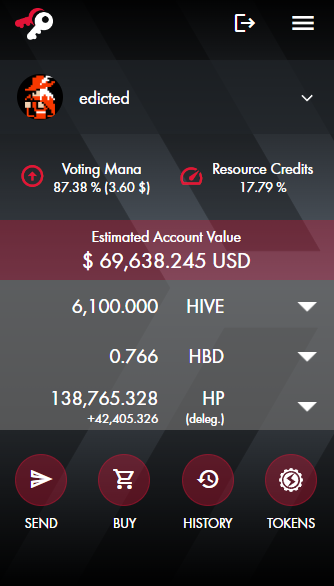
The price is right!
Everyone likes to get a good deal.
What is a better deal... than free?
Can't beat that, amirite? SWAG!
The problem is that there is no such thing as "free".
Everything costs something.
Even if you personally get something for free, it costs someone else certain amount of resources. A recent example of this would be the COVID vaccinations. They were free, yeah? And yet companies like Pfizer made billions of dollars, didn't they? Where did that money come from, if not from the those that used the service?
See: Subsidy
My tax dollars pay for that!
mmm Hm, okay boomer.
Life is not so simple as this. Theoretically tax dollars are allocated in such a way that makes society a better place. This can be seen as an investment. We might pay into a service like food stamps and never actually use the service, but in theory the world is a better and more productive place in general due to this kind of socialism.
In THEORY, we can greatly benefit from socialism. Less people dying from COVID and less people having long-term side effects is good for society, yeah? That's the theory anyway. In reality we see that, once again, the issues are not so simply employed in the way that we envisioned them. But this is neither here nor there.
The price is wrong, bitch!
But I'm not here to talk about taxes in this one. The most well known free services are WEB2 services. First, we had WEB1: paid subscriptions and paywalls and shareware that required money to be fully unlocked. It was later discovered that charging users their fair share for service was actually a detriment to mainstream adoption.
This is especially true for abundance technology that can service millions (if not billions) of humans. Charging for service ironically becomes counterproductive to the business model. The pioneers of the Internet slowly came to the realization that it's better to have a hundred million users than it is to charge a million users (or less) for service. Such a strange turn of events, indeed!
Even charging a single penny for something is a hindrance to acquiring a userbase. After all, that charge for one penny has to go through a bank. If it requires a credit card... well some people don't have a credit card. Even more people would be worried that their information would be stolen and they'd be the victim of identity theft. This was especially relevant when the Internet was still emerging from its infancy and scams were far more common (remind you of another technology out there?).
But how will we make money if we don't charge users?
This is the question all the WEB1 people were asking. Many of them went on to claim that WEB1 was all their would ever be, just like many claimed that 56k modem was the best there would ever be. Just like people said the Internet itself was a fad. These people lack vision. They can't imagine the future; to be fair imagining the future is difficult. Chaos theory is hard to parse.
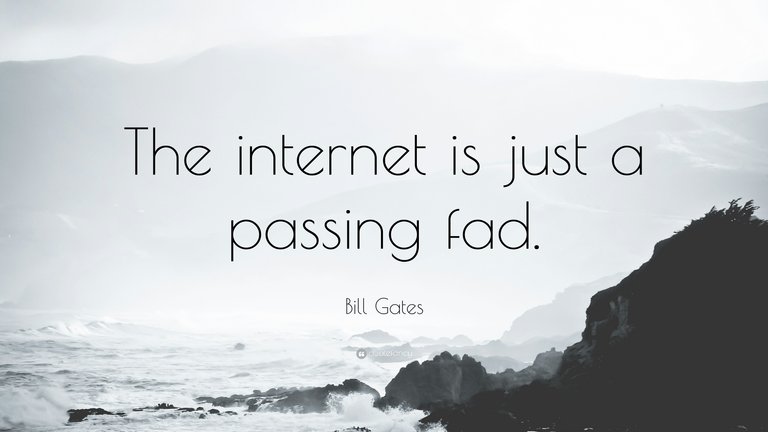
And so we went from WEB1 to WEB2
And many people were shocked at just how well it worked. Facebook was a thing of beauty when it first came out. Do you remember it? Maybe I'm getting old.
BACK IN MY DAY!!!11...
But all good things must come to an end, mustn't they?
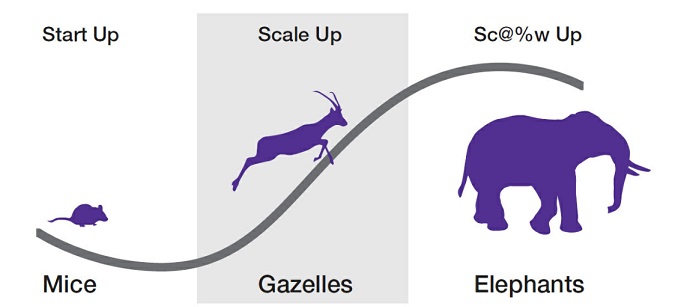
Once a service gets too big and comfortable, the corruption sets in. The selling out and the constant greed reign supreme. Greed ruins everything it seems. Perhaps that's just the way of the world. Death is a big part of life, regardless of whether or not we embrace that truth or not. Perhaps greed is also a big part of society. Lean into it or be destroyed. No great nation was built on altruism alone. The proper incentives must align in order for a entity to build real sustainable value. Positive feedback loops are required.

But perhaps I get ahead of myself.
So how do they do it? How does WEB2 generate an income to, not only sustain itself, but also grow and expand to the massive tech giants we see today? At first it was just advertising (remember banners?). Yeah, they're annoying, but they also allow us to access all kinds of free content. Isn't that worth it? Some will opt to pay a fee to remove ads from their app, and that's fine too. It's nice to have the option when it's available.
I think we got into much bigger trouble when these tech giants realized that there was another way to make money besides just selling ad space. This is when data itself became valuable. At first, it was just targeted ads. The ads were made exponentially more effective by leveraging the data on them to showcase product that they were much more likely to buy. For example, the Internet knows that the chance of me buying a bra or a bikini or tampons is zero. I don't buy those things, I will never buy those things.
The Facebook algorithm knows this about me, just as it knows it of many others as well. Thus, instead of doing traditional ads that are completely random, big tech realized they could do targeted ads, that not only had much more value on average, but also that value was even easier to calculate than it was before. Those who buy ad-space from Big Tech know exactly what they are getting. It's a science at this point. Has been for a while. Statistically analysis gets very accurate when you have a billion data points. Volume begets volume.
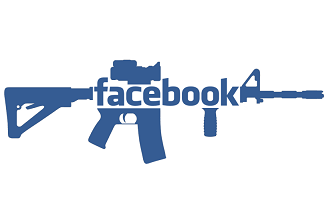
Targeting advertising was harmless.
Not only was it harmless, it was actually kind of nice seeing product that I actually might want to buy. Have I ever bought anything from an advertisement? Meh, not really. I don't personally really buy things very often. Although when I do, if I have to choose between one brand or the other, I can guarantee that I have chosen the brands that I recognized over ones I did not. Branding is a powerful drug. The brainwashing is real and unavoidable. The human mind is weird like that. Working as intended.
I'd say the real damage hit when Big Tech realized they needed to store any and every tidbit of information they could find on us. After all, one day it may prove valuable. Now that technology is abundant and terabytes of data are very cheap these days (unthinkable 20 years ago), might as well store everything. Text is cheap. Databases are advanced. Data and abundance have fully merged. Crypto will allow money and abundance to merge, and I guarantee it's going to be a thousand times weirder than data abundance.
A big problem for WEB2 is monetizing the userbase, as described above. There is a conflict of interest there. The tech company in question is supposed to be servicing the users of the platform, but WEB2 flipped everything on its ear. Users don't matter because users aren't paying customers. Each user leeches a tiny bit of resources from the corporation, and the corporation needs to find a way to leverage that loss into an even bigger gain.
This turns "the customer is always right" into "plenty of fish in the sea". Humans are being farmed (in more ways than one). WEB2 is actually one of the most painless ways of doing it, but the conflict of interest remains. Users become the product and the real customers are those who want to buy Big Tech's data. I'd say so far we've gotten off pretty easy, but we can all see the shitstorm brewing on the horizon. It seems that the powers that be are constantly threatening tyranny upon us, and Big Tech would be the right hand of such subjugation. Just ask China.
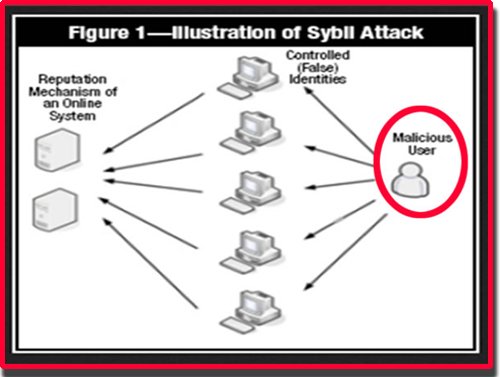
(Free_Service == Sybil_Attack)
Originally this is what this post was supposed to be about. Everything that came before this was just a preamble. Blame it on my A.D.D, baby. The biggest problem with the WEB2 business model is by far identification and reputation.
Just look at how many bots are on Twitter. It's insane! One person automating thousands of accounts to push an agenda (almost always a bad one). No one could have even imagined that social media bots could literally manipulate the outcomes of elections. Now this seems to be a theory that everyone understands is at least possible. Say the right crypto keyword on Twitter and the bots will instantly post links trying to separate you from your money. It's crazy.
And again, it all comes back to free service.
Bots like this are highly ineffective on WEB3, because in many ways WEB3 is a retrograde return to WEB1: forcing users to pay for service. Bots run rampant in WEB2 because WEB2 is free. Creating an email is free. Creating a Facebook/Twitter/Instagram account is free. Posting a comment is free. Sending a message is free. Creating a group is free. Posting a picture is free. FREE FREE FREE! Free service has since been very effectively exploited by bots. One person acting like they are a thousand different people; the definition of a Sybil attack.


Hmmmm what was I writing that day in 2017...
I know what you're thinking...
Hive is full of bots. How can Hive be full of bots if Hive is WEB3? Ah well, the difference is that most bots on Hive actually have some sort of value, and the devs that run the bots are paying a fee to run them (even if it's 'just' RCs). When is the last time you saw an actual malicious bot on Hive? For me it's been quite a long time. Malicious bots often get downvoted into negative reputation instantly and you rarely ever see them. They aren't worth the trouble, so nobody does it.
That's another advantage of WEB3, the community regulates itself. WEB2 gets into all kinds of trouble because they have to hire people to moderate the platform and make sure everyone is playing nice (this increases overhead cost on already razor thin profit margins). Then they realize that isn't a sustainable answer, so they use algorithms, bots, and AI to help moderate the platform. Obviously we see how that is also often a huge fail, as many people get red-flagged when they should not be.
On WEB3, the community regulates itself. See something that's blatantly deceitful? Downvote it into the dirt. It's that simple. And how much do we have to pay users to regulate the platform? Zero dollars: we all do it... for free. This is a huge advantage WEB3 has over WEB2: it is self-regulating, just like capitalism itself. Nobody "controls the bread supply".
But I seem to have glossed over WEB1!
While WEB3 shares a single similarity between WEB1 (paid service), that is where the similarities end.
- In WEB1, the service is owned by an incorporated entity.
- In WEB3, the service is owned by the community.
- In WEB1, the user pays a fee to receive service.
- In WEB3, the user owns the service and agrees to pay the fee to prevent bad actors from exploiting the network.
- In WEB3, although the user has to pay for service, the user also owns the service, and thus also can profit from the service just as any owner can profit from the value of their own property.
And so we see that while WEB3 charges users, it also pays users. The users are the customers and the users are the owners as well. It's all very Zen. On the average, WEB3 pays users far more than it charges them, unless you are a bad actor, in which case the network will not reward you. At least this is the theory & ultimate goal behind WEB3. There are many platforms that claim to be WEB3, but that is yet to be seen in practice.
So how do WEB2 stop bad actors from exploiting free service?
Short answer: they don't.
They can only mitigate the damages.

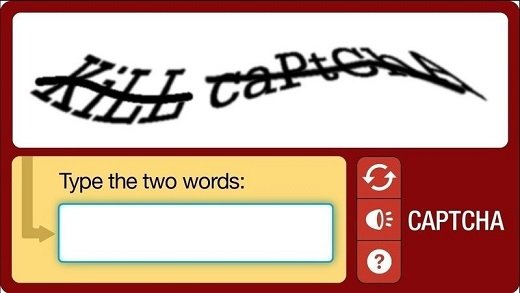
Cat & Mouse Whack-a-Mole
- First, WEB2 services would simply ban IP addresses that tried to spam the network with DDOS and Sybil attacks. If a million requests were all coming from the same IP address, no problem. Just block the IP address with the firewall.
- However, attackers don't like to be blocked. They adapted. They found ways to spoof their IP address and continue making a million requests with a million different IP addresses. WEB2 devs then had to find other patterns that revealed themselves in their attacks and block those actions (like trying to brute-force a single account or spam a particular message).
- Eventually the CAPTCHA was created. You all know the one. The server would take a known word or image and manipulate it in a way that bots would not be able to detect. However, there are some advanced bots out there that were able to avoid this security as well. The game of Cat & Mouse continues onward.

How does one attain a reputation on WEB2?
Short answer is: you can't.
Even if you KYC with Twitter and get your silly little Blue Checkmark (that is now white for some reason), we've seen recently that even this mechanic has been broken. Not only that, even if Twitter KYC was perfect, it still wouldn't matter. Why? Because Twitter owns all the accounts. They control the entire service. Again, this is not the case in WEB3.
Twitter could make it look as though you made a Tweet that you didn't. No one considers this, because it never happens. However, that doesn't matter. The fact that they CAN do it on a technical level is a core difference between WEB2 and WEB3. WEB3 can no be built on the promises of centralized agents. Don't trust: verify.
On Hive, the biggest whale and the smartest dev are powerless to post in my name or transfer my money. It simply is not possible. If the government approaches a powerful actor on Hive and DEMANDS that my account be suspended or my money be transferred to another account? Might as well ask pigs to fly. It can't be done. Encryption guarantees this. This is the big difference between WEB2 and WEB3. It's a big deal and most people do not realize how important it is, because the real tests are yet to be experimented.
Crypto acts outside of the legacy system and gives us true ownership of our own accounts. This is undervalued by many who can't tell the difference because they've never had a run-in with WEB2 where they get banned and lose everything. WEB2 is not something devs can build on knowing that what they build may or may not be allowed. Devs need something that they actually own to get the guarantees they need to move forward.

The exception proves the rule.
Many naysayers would make the claim that Justin Sun is a prime example of someone's money being stolen on the blockchain. In reality, it is the perfect example of exactly how impossible it is for anyone to have their money stolen. Just look how the hostile takeover panned out.
- Sun bought stake that was promised to the community.
- He was unreasonable and refused to have a conversation with witnesses, hinting that we would be absorbed into the Tron ecosystem and then immediately deleting the message.
- We froze his stake so we had time to figure out what the hell to do about the situation.
- He forced our hand by literally hacking exchanges, calling us the hackers, and using other people's stake to unlock his own money while making 3 separate exchanges completely insolvent.
- He replaced our DIRECT DEMOCRACY with 20 sock-puppets in true imperialist fashion.
- Even after all this bullshit, a big chunk of this network still DEMANDED that we allow him to keep his tokens. THINK ABOUT HOW FUCKING INSANE THAT IS!!!!!11 Seriously.
- After the smoke cleared, Sun still controlled all his Steem coins.
- People think this is a relevant example as to why money on Hive is not secure. In reality, it is the perfect in-the-field example of just how safe all our money actually is on a fundamentally decentralized macro level.
- Even bad actors are provided quite a bit of protection.
- They can't be censored or stolen from.
- Better 10 guilty men go free that one innocent person be locked up.
- This is the mantra of censorship resistance.
Conclusion
This post ran a lot longer than I thought it would.
I guess I had a more to say than I realized.
Long story short: Free service isn't free.
WEB2 is not free.
We have been turned into little Matrix batteries that produced $10 a year in profit for the companies that monetize us. In WEB2, users are the product. The real consumers are buying data from Big Tech. WEB3 gives us back the means of production, and true ownership over our digital selves.
WEB3: Get paid to _________.
Posted Using LeoFinance Beta
